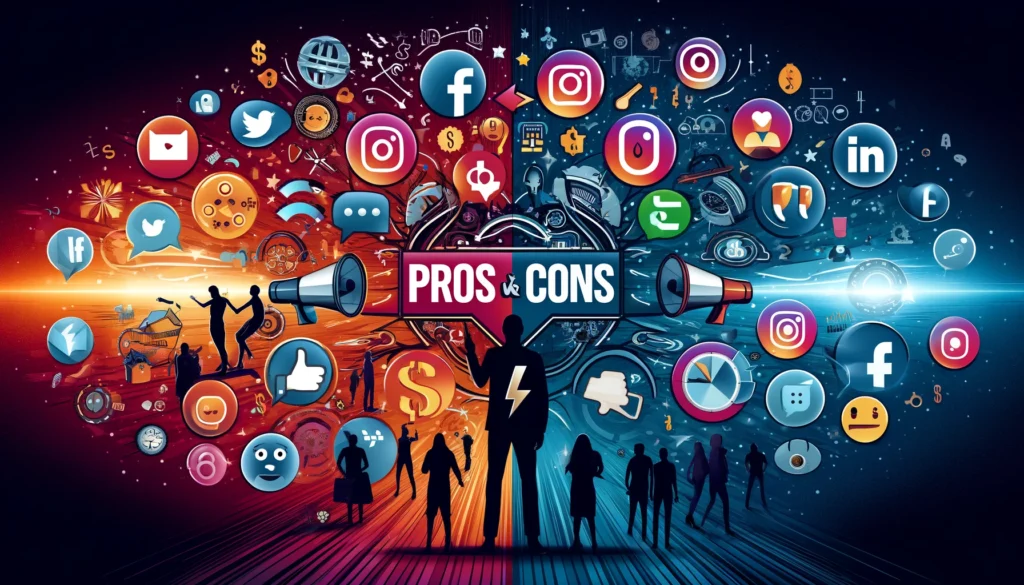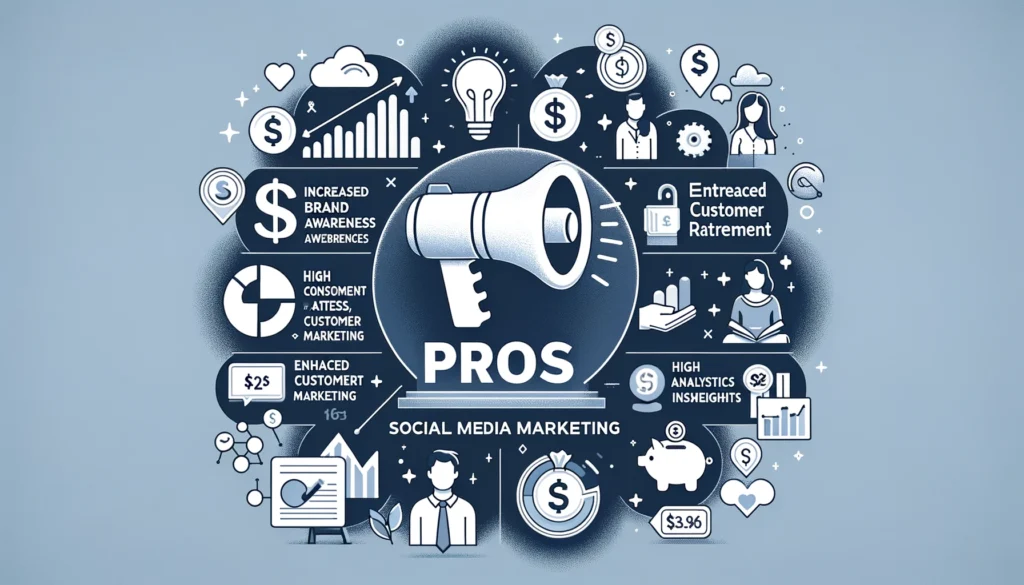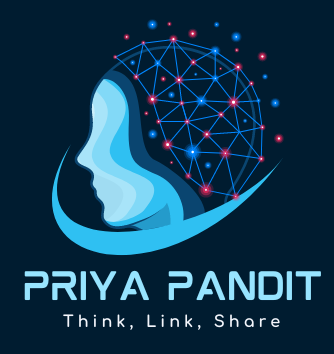
The Pros and Cons of Social Media Marketing
Social media marketing is a double-edged sword that can propel your brand to new heights or challenge your resources and reputation. On Priya Pandit, I’ll dive deep into the social media benefits and drawbacks to help you understand this dynamic marketing tool. With millions of users worldwide, social media platforms offer unparalleled opportunities for engagement, visibility, and growth. But with great power comes great responsibility, and navigating the complexities of social media marketing requires a keen understanding of both its advantages and potential pitfalls. Join me as I explore the pros and cons of social media marketing, guiding you through the essential insights every marketer should know.

Introduction to Social Media Marketing
What is Social Media Marketing (SMM)? Social media marketing involves using platforms like Facebook, Instagram, Twitter, LinkedIn, and others to promote products or services. It’s an essential component of digital marketing, offering numerous advantages and disadvantages about social media that every marketer should consider.
The Pros of Social Media Marketing

1. Increased Brand Awareness
One of the primary advantages of social media in marketing is the ability to increase brand awareness. With billions of active users on platforms like Facebook and Instagram, social media provides a vast audience for your brand to reach. Regular posting and engaging with your audience can significantly enhance your visibility. Creating engaging content that resonates with your target audience can help your brand become a household name.
2. Cost-Effective Marketing
Social media marketing is extremely cost-effective when compared to traditional advertising tactics. Many social media platforms offer free account creation, and even paid promotions are relatively affordable. This allows businesses to achieve a high return on investment (ROI) without breaking the bank. Small businesses, in particular, can benefit from social media’s cost-effectiveness, enabling them to compete with larger companies with bigger marketing budgets.
3. Improved Customer Engagement
Social media allows you to interact with your audience directly. This engagement can help build a loyal customer base, as customers appreciate brands that are responsive and attentive. Regular interactions can also provide valuable feedback and insights into customer preferences and behavior. Engaging with your audience through comments, messages, and live sessions can humanize your brand and create a community around it.
4. Enhanced Customer Insights
Benefits of social media marketing include the ability to gather detailed analytics about your audience. Platforms like Facebook and Instagram offer robust analytics tools that provide insights into customer demographics, behavior, and preferences. By understanding your audience’s preferences, you can create more targeted and effective marketing campaigns that resonate with them on a deeper level.
5. Increased Traffic and SEO Rankings
Your website may receive a lot of traffic from social media. By sharing valuable content and linking back to your site, you can improve your SEO rankings. Google considers social signals as an indicator of content relevance and popularity, which can positively impact your search engine rankings. Regularly posting high-quality content and engaging with your audience can boost your website’s visibility and attract more organic traffic, leading to higher conversion rates and sales.
The Cons of Social Media Marketing

1. Time-Consuming
One of the significant social media downsides is the time commitment required. Managing multiple social media accounts, creating content, responding to comments, and analyzing performance can be overwhelming, especially for small businesses with limited resources. Developing a consistent posting schedule and creating high-quality content requires significant time and effort, which can be challenging for businesses with limited manpower.
2. Requires Constant Monitoring
Social media is a 24/7 platform, and your audience expects timely responses. This constant need for monitoring can be challenging, especially if you don’t have a dedicated social media team. Failure to respond promptly can lead to missed opportunities and customer dissatisfaction. To maintain a positive brand image and customer satisfaction, it’s essential to stay active and responsive on social media, which can be demanding and time-consuming.
3. Privacy and Security Concerns
Disadvantages of social media advertising include privacy and security issues. Social media platforms collect vast amounts of data, and any security breaches can lead to significant data loss and reputational damage. Businesses must ensure they comply with privacy regulations and protect customer information. Cybersecurity threats, such as hacking and data breaches, are real concerns that can jeopardize your business’s credibility and customer trust.
4. Algorithm Changes
Social media platforms frequently update their algorithms, which can affect your posts. These changes can reduce your organic reach, making it necessary to invest in paid promotions to maintain your audience engagement. Staying updated with algorithm changes and adapting your strategy accordingly is crucial to maintaining your social media presence and reaching your target audience effectively.
5. Risk of Negative Feedback
While social media allows for positive interactions, it also opens the door to negative feedback. Unsatisfied customers can publicly voice their complaints, potentially damaging your brand’s reputation. Handling negative feedback requires careful and prompt responses to mitigate its impact. Negative comments or reviews can spread quickly on social media, and if not addressed promptly and professionally, they can harm your brand’s image and customer trust.


